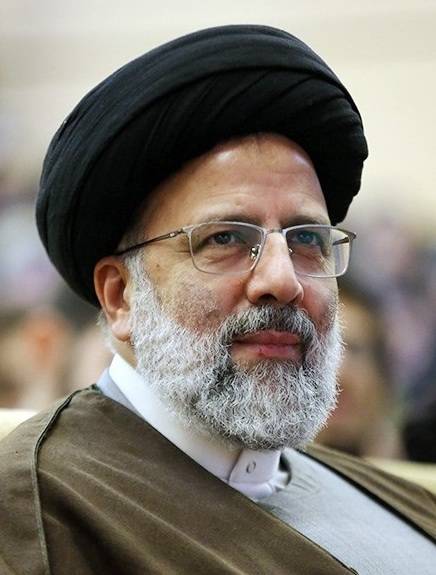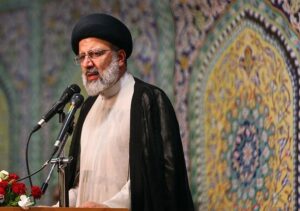In a remarkable new development, Iran contacted its long-lasting enemy, the US, for help following a sad helicopter crash that killed President Ebrahim Raisi. This surprising supplication for help comes in the midst of a setting of tense relations and firmly established ill will. The accident, covered in secret and happening in antagonistic weather patterns, has left the worldwide local area in shock and skepticism.
An Unexpected Call for Help
A Frantic Request from an Impossible Source
On a hazy Sunday, a helicopter conveying President Ebrahim Raisi, his unfamiliar clergyman Hossein Amir-Abdollahian, and seven others crashed, prompting a quick scramble for help. Shockingly, Iran, a country that has had no formal conciliatory relations with the US since the 1979 Islamic Upheaval, contacted Washington for help. This solicitation denoted a critical, yet short, takeoff from many years of aggression between the two countries.
“We were asked by the Iranian government for help,” expressed Matthew Mill operator, a representative for the U.S. State Division. “We said that we might want to help – – something that we would do as for any administration in this present circumstance.” Nonetheless, strategic difficulties at last forestalled the U.S. from giving the mentioned help.
Unanswered Inquiries and Strange Interchanges
Insights concerning the idea of Iran’s solicitation stay inadequate. The State Division has been quiet about how the two countries conveyed and the particulars of the help looked for. It is realized that the Iranian government looked for guaranteed help in finding the helicopter, alluding to the turbulent and critical nature of the circumstance.
This supplication for help followed late incognito discussions between the U.S. what’s more, Iran in Oman, pointed toward balancing out the area in the midst of heightening pressures with Israel. The accident, thusly, adds a complicated layer to a generally multifaceted international scene.
The Fallout: Political Sympathies and Discussions
A Standard Signal or a Political Tightrope?
Following the accident, the Biden organization gave official sympathies to Iran, a signal it depicted as standard convention. “As Iran chooses another president, we reaffirm our help for the Iranian public and their battle for basic liberties and principal opportunities,” read a proclamation from the State Division. This message, nonetheless, accompanied a reasonable proviso: it didn’t mean help for Raisi, who was notorious for his job in mass executions and merciless crackdowns on fights.
Public safety Chamber representative John Kirby stressed this qualification, expressing, “This was a man who had a ton of a guilty conscience,” alluding to Raisi’s set of experiences of denials of basic freedoms. Regardless of these monstrosities, the U.S. communicated lament over the death toll, keeping a fragile harmony between discretionary dignity and moral judgment.
Blended Responses and Shock
The U.S. sympathies, reverberated by a few European countries, started shock among pundits of Iran’s administrative system. Masih Alinejad, a noticeable ladies’ freedoms dissident who endure a death endeavor supposedly coordinated by Tehran, denounced the sympathies as adding “salt on the injuries of the persecuted.” Her feelings resounded with numerous who view Raisi’s passing as a potential defining moment for Iran’s future.
Examinations and Hypotheses
A More critical Glance at the Accident
Following the accident, Safeguard Secretary Lloyd Austin explained that U.S. powers had not modified their stance, underlining that the US had no contribution in the occurrence. “The US had no part to play in that accident. That’s true, straightforward,” he declared, precluding any hypothesis of unfairness by unfamiliar entertainers.
Austin recognized that the accident might have come about because of different variables, including mechanical disappointment or pilot blunder. Iran’s military has sent off an examination, however past occurrences have frequently seen Tehran pointing fingers at Israel or the U.S., given the authentic setting of local threats.
Sanctions and Their Results
Previous Iranian Unfamiliar Pastor Mohammad Javad Zarif credited the accident to the continuous U.S. sanctions, which have hampered Iran’s capacity to get aeronautics parts. The approvals, expected to control Iran’s atomic aspirations and undermining exercises, have coincidentally influenced the country’s affable aeronautics area.
In light of Zarif’s case, State Division representative Mill operator redirected fault back onto Tehran. “Eventually, the Iranian government is liable for the choice to fly a 45-year-old helicopter in what was portrayed as unfortunate weather patterns, no other entertainer,” he said. This trade highlights the relentless grating between the two countries, even notwithstanding a philanthropic misfortune.
The Worldwide Effect and Future Ramifications
Local Security and Solidness
The accident and its outcome have brought up issues about the eventual fate of U.S.- Iran relations and local solidness. While Guard Secretary Austin made light of any quick security ramifications, the demise of a sitting president definitely makes a vacuum of force and vulnerability. The preeminent pioneer, Ayatollah Ali Khamenei, stays a definitive expert in Iran, yet the unexpected loss of President Raisi adds a layer of eccentricism.
A Defining moment or a Brief Shock?
As Iran plans to choose another president, the worldwide local area observes intently. The occasions encompassing Raisi’s demise might actually impact the country’s political direction. Will this misfortune brief a shift towards more moderate initiative, or will it support business as usual of hardline administration? The solutions to these inquiries will shape not exclusively Iran’s future yet in addition its relations with the more extensive world.
A Snapshot of Reflection
The sad helicopter crash that killed President Ebrahim Raisi has made a significant imprint on Iran and the global local area. The startling call for help from the U.S. features the intricacies of worldwide strategy and the many-sided trap of relations between countries. As the world anticipates the result of Iran’s official determination, the repercussions of this episode will keep on unfurling, impacting international elements long into the future.
At these times of emergency, the harmony between communicating philanthropic compassion and keeping a firm position on basic liberties turns out to be more fragile than any other time in recent memory. The demise of President Raisi fills in as a strong sign of the delicacy of life and the getting through journey for equity and harmony in a turbulent world. https://www.aljazeera.com/program/inside-story/2024/5/20/what-does-ebrahim-raisis-death-mean-for-iran


